
The Irish Civil War was a conflict that followed the Irish War of Independence and accompanied the establishment of the Irish Free State, an entity independent from the United Kingdom but within the British Empire.

The Crying Game is a 1992 crime thriller film, written and directed by Neil Jordan, produced by Stephen Woolley and Nik Powell, and starring Stephen Rea, Miranda Richardson, Jaye Davidson, Adrian Dunbar, Ralph Brown, and Forest Whitaker. The film explores themes of race, sex, nationality, and sexuality against the backdrop of the Troubles in Northern Ireland.

Joseph Mary Plunkett was an Irish republican, poet and journalist. As a leader of the 1916 Easter Rising, he was one of the seven signatories to the Proclamation of the Irish Republic. Plunkett married Grace Gifford in 1916, seven hours before his execution.
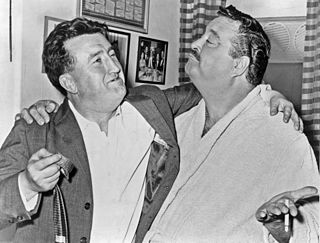
Brendan Francis Aidan Behan was an Irish poet, short story writer, novelist, playwright, and Irish Republican, an activist who wrote in both English and Irish. His widely acknowledged alcohol dependence, despite attempts to treat it, it impacted his creative capacities and contributed to health and social problems which curtailed his artistic output and finally his life. In 2023 reports emerged of his allegedly sexually violent behaviour against a young New York publicist, Letty Cottin Pogrebin in the early 1960s.
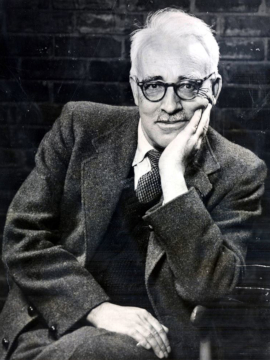
Frank O'Connor was an Irish author and translator. He wrote poetry, dramatic works, memoirs, journalistic columns and features on aspects of Irish culture and history, criticism, long and short fiction, biography, and travel books. He is most widely known for his more than 150 short stories and for his memoirs. The Frank O'Connor International Short Story Award was named in his honour.
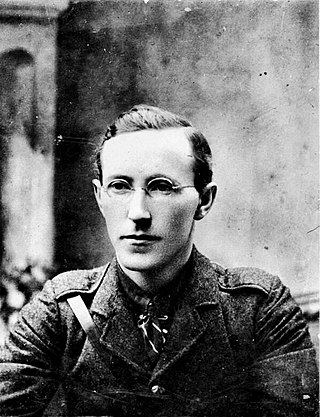
William Fanaghan Lynch was an Irish Republican Army officer during the Irish War of Independence of 1919–1921. During much of the Irish Civil War, he was chief of staff of the Irish Republican Army. On 10 April 1923, Lynch was killed whilst trying to escape an encirclement by Free State troops in south Tipperary.
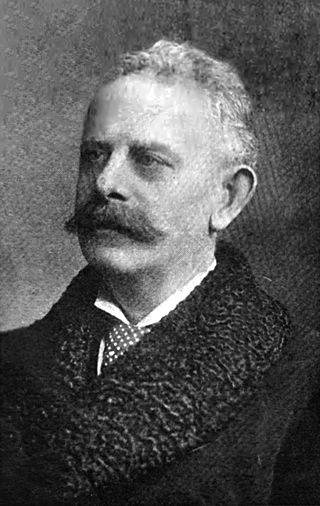
James Francis Bernard, 4th Earl of Bandon, KP, was a British Deputy Lieutenant in Ireland and Irish representative peer. Bernard was a cousin of the Earl of Midleton, who was head of the southern Irish Unionist Alliance at the time of the Anglo-Irish War, 1919–21.

Mountjoy Prison, founded as Mountjoy Gaol and nicknamed The Joy, is a medium security men's prison located in Phibsborough in the centre of Dublin, Ireland. The current prison Governor is Ray Murtagh.
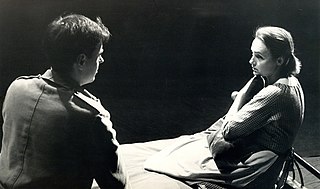
The Hostage is a 1958 English-language play, with songs, by Irish playwright Brendan Behan. It consists of a much longer text, with songs, expanded from a one-act Irish language play An Giall also by Behan.
Ernest Bernard Malley was an Irish republican and writer. After a sheltered upbringing, he witnessed and participated in the Easter Rising of 1916, an event that changed his outlook fundamentally. O'Malley soon joined the Irish Volunteers before leaving home in spring 1918 to become an IRA organiser and training officer during the Irish War of Independence against British rule in Ireland. In the later period of that conflict, he was appointed a divisional commander with the rank of general. Subsequently, O'Malley strongly opposed the Anglo-Irish Treaty and became assistant chief of staff of the Anti-Treaty IRA during the Irish Civil War of 1922–23.

Roderick O'Connor was an Irish republican revolutionary. He was Director of Engineering for the IRA in the Irish War of Independence. O'Connor opposed the Anglo-Irish Treaty of 1921 and was chairman of the republican military council that became the Anti-Treaty IRA in March 1922. He was the main spokesman for the republican side in the lead-up to the outbreak of the Irish Civil War in June of that year. On 30 June, O'Connor was taken prisoner at the conclusion of the attack by Free State forces on the Four Courts in Dublin. On 8 December 1922, he was executed along with three other senior members of the IRA Four Courts garrison. All four men were executed without trial or courts martial.

The executions during the Irish Civil War took place during the guerrilla phase of the Irish Civil War. This phase of the war was bitter, and both sides, the government forces of the Irish Free State and the anti-Treaty Irish Republican Army (IRA) insurgents, used executions and terror in what developed into a cycle of atrocities. From November 1922, the Free State government embarked on a policy of executing Republican prisoners in order to bring the war to an end. Many of those killed had previously been allies, and in some cases close friends, of those who ordered their deaths in the civil war. In addition, government troops summarily executed prisoners in the field on several occasions. The executions of prisoners left a lasting legacy of bitterness in Irish politics.
The Northern campaign was a series of attacks by the Irish Republican Army (IRA) Northern Command between September 1942 and December 1944 against the security forces in Northern Ireland. The action taken by the Northern Irish and the Irish governments as a result of these attacks shattered the IRA and resulted in the former being free from IRA activity by the end of World War II.
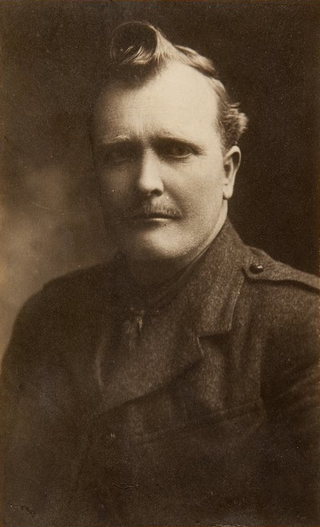
Seán Hales was an Irish political activist and member of Dáil Éireann from May 1921 to December 1922.
The Lebanon hostage crisis was the kidnapping in Lebanon of 104 foreign hostages between 1982 and 1992, when the Lebanese Civil War was at its height. The hostages were mostly Americans and Western Europeans, but 21 national origins were represented. At least eight hostages died in captivity; some were murdered, while others died from lack of medical attention. During the fifteen years of the Lebanese civil war an estimated 17,000 people disappeared after being abducted.

Richard Barrett, commonly called Dick Barrett, was a prominent Irish Republican Army officer who fought in the War of Independence and on the Anti-Treaty side in the Irish Civil War. He was assistant quartermaster-general of the IRA with the rank of commandant. During the Civil War he was captured by Free State forces at the Four Courts on 30 June 1922 and later executed unlawfully on 8 December 1922.
The killings at Coolacrease was an incident that took place in County Offaly during the Irish War of Independence. In late June 1921, Irish Republican Army (IRA) volunteers came under fire at a roadblock in the rural area of Coolacrease. The roadblock was located at the boundary of land owned by loyalist farmer William Pearson. On 30 June, his sons Richard and Abraham Pearson were shot by an IRA firing squad and their house was burnt.

The guerrilla phase of the Irish Civil War began in August 1922, when the forces of the Irish Free State took all the fixed positions previously held by the Anti-Treaty IRA. The IRA then waged a guerrilla war to try to bring down the new Irish Government and overturn the Anglo-Irish Treaty. This guerrilla campaign was ultimately defeated.
George Plant was a member of the Irish Republican Army (IRA) who was executed by the Irish Government in 1942.














